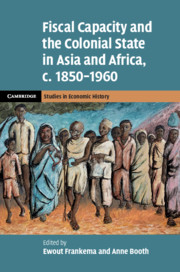Through an institutional approach and by focusing on long-term developments, this article offers a genealogy of the pluralistic character of the landraad (regional colonial court) in colonial Java. It argues that the pluralistic landraden—consisting of a Dutch president, Javanese judges, a local prosecutor, and Islamic and Chinese advisers—were crucial to the process of colonial state formation. This long-term process reflects continuities rather than rupture and change between the era of the VOC and the nineteenth-century developing colonial state. The spatial sites of the landraden reveal not only the conflicts between several layers, institutions, and individuals in the process of colonial state formation but also the importance of local actors in this process. Local dynamics as well as tensions between the various layers of the colonial state, which were striving either for uniformity or for the maintenance of local pluralities, provide insights into the complex formation processes of dual rule from below.
